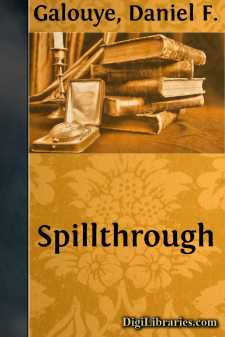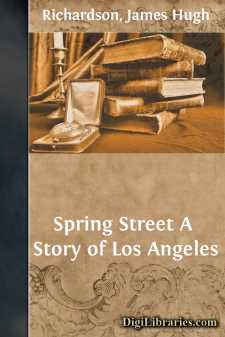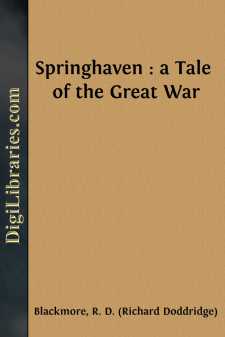Fiction
- Action & Adventure 180
- Biographical 15
- Christian 59
- Classics 6965
- Coming of Age 5
- Contemporary Women 3
- Erotica 8
- Espionage/Intrigue 12
- Fairy Tales, Folklore & Mythology 236
- Family Life 169
- Fantasy 117
- Gay 1
- General 596
- Ghost 32
- Historical 808
- Horror 43
- Humorous 160
- Jewish 25
- Legal 4
- Medical 22
- Mystery & Detective 315
- Political 49
- Psychological 41
- Religious 64
- Romance 159
- Sagas 11
- Science Fiction 730
- Sea Stories 113
- Short Stories (single author) 537
- Sports 10
- Suspense 1
- Technological 8
- Thrillers 2
- Urban Life 31
- Visionary & Metaphysical 1
- War & Military 173
- Westerns 199
Fiction Books
Sort by:
Like the sibilant, labored breathing of a dying monster, the tortured ship wailed its death sobs as it floundered in deep hyperstellar space. Clank-sss, clank-sss, went the battered safety valve of the pile cooling system. BOOM ... boom ... BOOM ... boom. A severed and dangling piston rod crashed in monotonous rhythm against a deck beam as the rest of the auxiliary compression unit strained to satisfy...
more...
by:
John Perry
SPINNING TOPS. At a Leeds Board School last week, the master said to his class, "There is to be a meeting of the British Association in Leeds. What is it all about? Who are the members of the British Association? What do they do?" There was a long pause. At length it was broken by an intelligent shy boy: "Please, sir, I know—they spin tops!" Now I am sorry to say that this answer was...
more...
by:
James Inglis
CHAPTER I. Province of Behar.—Boundaries.—General description.—District of Chumparun.—Mooteeharree.—The town and lake.—Native houses.—The Planters' Club.—Legoulie. Among the many beautiful and fertile provinces of India, none can, I think, much excel that of Behar for richness of soil, diversity of race, beauty of scenery, and the energy and intelligence of its inhabitants....
more...
When Henry Vizetelly, that admirable scholar, historian, and journalist, was sent to prison for publishing Zola's novels mine were taken over by Walter Scott, and all were reprinted except "Spring Days." This book was omitted from the list of my acknowledged works, for public and private criticism had shown it no mercy; and I had lost faith in it. All the welcome it had gotten were a few...
more...
His father was dying. John Gallant paced the narrow sun-baked lawn between the porch of his home and the street. Soon, he knew, the door would open and he would be called inside. That would be the end. A sickening feeling of terror gripped him and his heart pounded in his chest. He took a step toward the door, which was really an involuntary movement. No, he couldn't go in there. The doctor was in...
more...
CHAPTER I WHEN THE SHIP COMES HOME In the days when England trusted mainly to the vigor and valor of one man, against a world of enemies, no part of her coast was in greater peril than the fair vale of Springhaven. But lying to the west of the narrow seas, and the shouts both of menace and vigilance, the quiet little village in the tranquil valley forbore to be uneasy. For the nature of the place and...
more...
by:
Francis Darwin
Governesses used to tell us that the seasons of the year each consist of three months, and of these March, April, and May make the springtime. I should like to break the symmetry, and give February to spring, which would then include February, March, April, and May. It has been said that winter is but autumn “shyly shaking hands with spring.” We will, accordingly, make winter a short link of...
more...
by:
Norah M. Holland
THE LITTLE DOG-ANGEL High up in the courts of Heaven to-dayA little dog-angel waits,With the other angels he will not play,But he sits alone at the gates;"For I know that my master will come," says he:"And when he comes, he will call for me." He sees the spirits that pass him byAs they hasten towards the throne,And he watches them with a wistful eyeAs he sits at the gates alone;"But...
more...
CHAPTER I THE NORTH RAID An hour before, Deal Sanderson had opened his eyes. He had been comfortably wrapped in his blanket; his head had been resting on a saddle seat. His sleep over, he had discovered that the saddle seat felt hard to his cheek. In changing his position he had awakened. His face toward the east, he had seen a gray streak widening on the horizon—a herald of the dawn. Sanderson found...
more...
ACT I. The King. In 1649, when Charles II. was uncertain as to what steps he should take on the death of his father, it was considered that the best and safest place for his temporary residence was the Castle at S. Helier, in Jersey, known by the name of Queen Elizabeth, where he had already lived for a short time on an earlier occasion. Founded by order of the Sovereign whose name it bore, it stands...
more...











